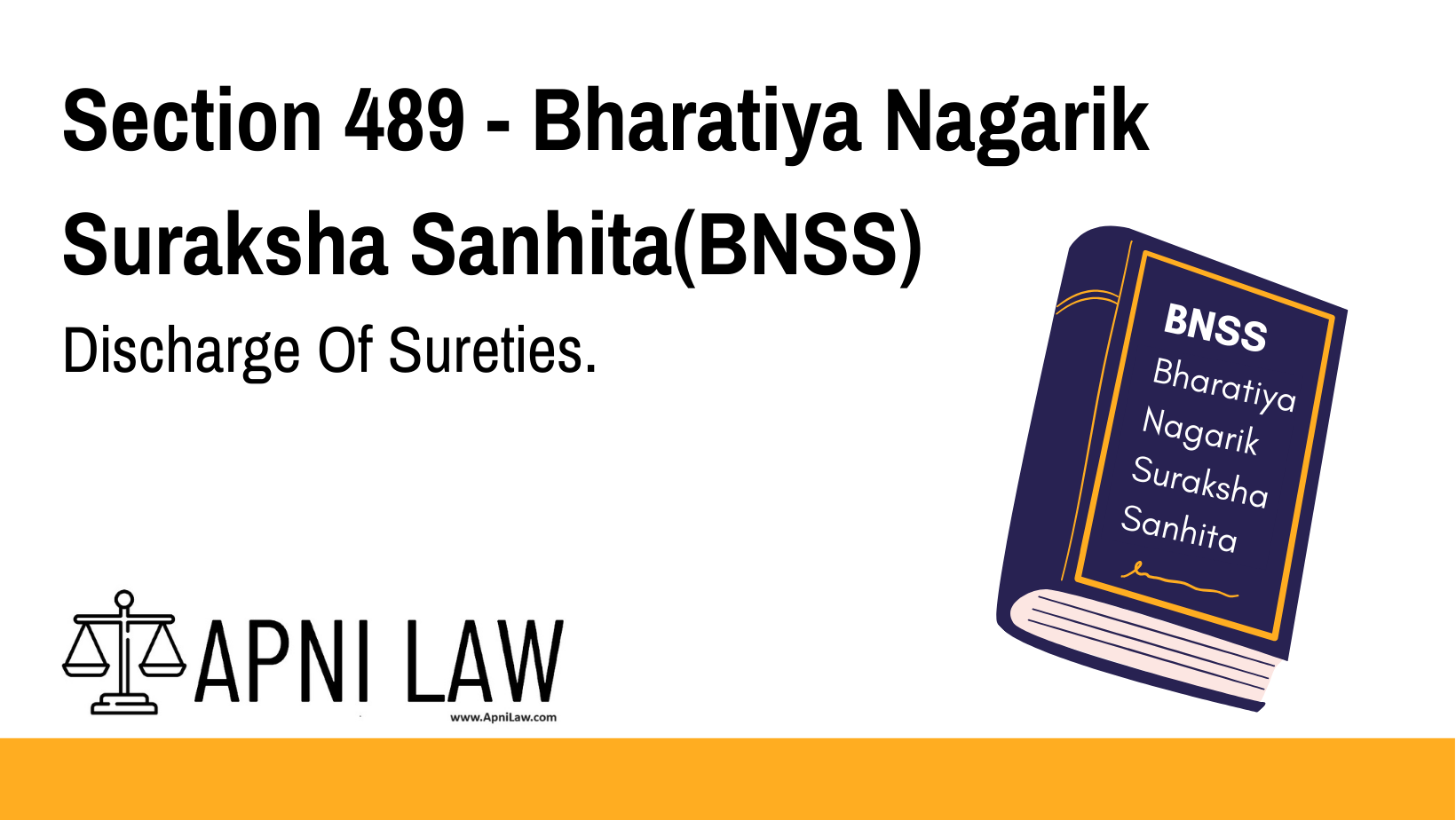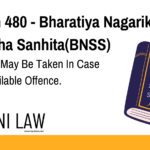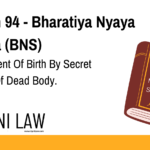Code: Section 489 BNSS
Discharge of Sureties from Bail Bond
(1) All or any sureties for the attendance and appearance of a person released on
bail may at any time apply to a Magistrate to discharge the bond, either wholly or so far as
relates to the applicants.
(2) On such application being made, the Magistrate shall issue his warrant of arrest
directing that the person so released be brought before him.
(3) On the appearance of such person pursuant to the warrant, or on his voluntary
surrender, the Magistrate shall direct the bond to be discharged either wholly or so far as
relates to the applicants, and shall call upon such person to find other sufficient sureties,
and, if he fails to do so, may commit him to jail.
Explanation of Section 489 BNSS
Section 489 of the BNSS addresses the discharge of sureties who have provided a bond for the attendance and appearance of a person released on bail. If a surety no longer wishes to be bound by the bond, they can apply to a Magistrate to discharge the bond, either fully or in part. Upon receiving the application, the Magistrate will issue an arrest warrant for the person released on bail, bringing them before the Court.
If the person appears before the Magistrate, either voluntarily or through the arrest warrant, the Magistrate will discharge the bond, either fully or for the concerned sureties. The person will then be required to provide fresh and sufficient sureties. If they fail to do so, they may be committed to jail.
Illustration
Example 1: Surety Requests Discharge
A surety, who had previously guaranteed the attendance of a person on bail, requests the Magistrate to discharge their bond. The Magistrate issues a warrant for the person’s arrest. When the person appears before the Court, the bond is discharged for that surety, but the person is ordered to provide new sureties. If they fail to do so, they are sent to jail.
Example 2: Voluntary Surrender and Bond Discharge
A surety voluntarily applies to be discharged from their bond. The Magistrate issues a warrant for the arrested person. Once the person appears before the Court or voluntarily surrenders, the bond is discharged for that surety. However, the individual is required to provide sufficient new sureties. If they cannot, they are committed to jail.
Common Questions and Answers on Section 489 BNSS
1. Can a surety apply to be discharged from the bail bond?
- Answer: Yes. A surety can apply to the Magistrate at any time to be discharged from the bond, either wholly or partially.
2. What happens when the surety is discharged from the bond?
- Answer: When the surety is discharged, the person released on bail must find new sufficient sureties. If they fail to do so, they may be sent to jail.
3. Does the person on bail have to appear in court if a surety applies for discharge?
- Answer: Yes. The Magistrate will issue a warrant to bring the person before the Court, where the bond may be discharged, and new sureties may be required.
Conclusion
Section 489 of the BNSS allows sureties to apply for discharge from their bond at any time. It also ensures that the person released on bail must provide new sureties if their bond is discharged. If they fail to provide sufficient sureties, the Court has the authority to commit them to jail. This section ensures the integrity of the bail process and allows for flexibility in situations where a surety no longer wishes to be bound by their commitment.








